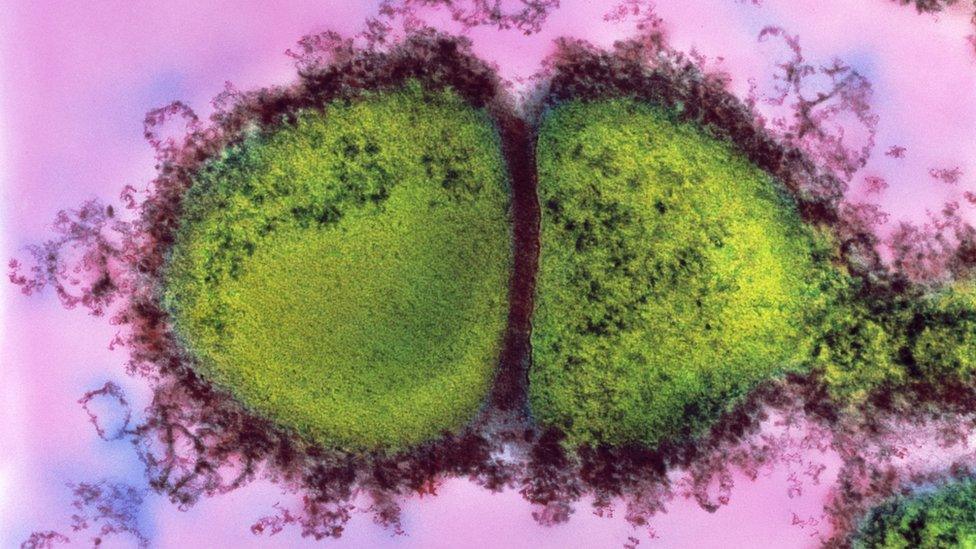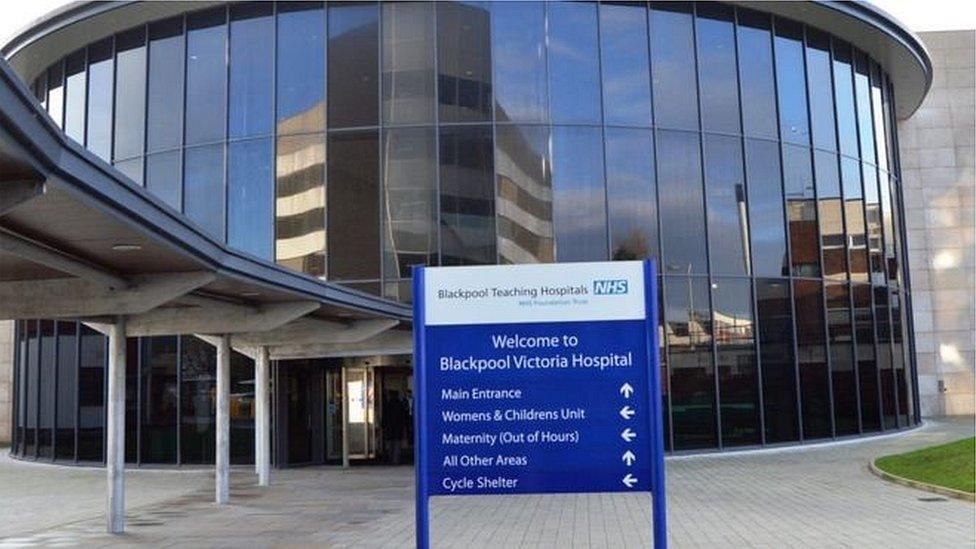Blackpool death: Abortion sepsis risk training inadequate - coroner
- Published

Ms Dunn's death was recorded as "streptococcus sepsis following medical termination of pregnancy"
Doctors are receiving "inadequate" training about the risk of sepsis after a mother-of-five died following an abortion, a coroner has warned.
Sarah Dunn, 31, died of "natural causes contributed to by neglect" in hospital on 11 April 2020, an inquest found.
Assistant coroner for Blackpool and Fylde Louise Rae's prevention of future deaths report, external has now been published.
She said Ms Dunn had been treated as a Covid patient even though the "signs of sepsis were apparent".
Her cause of death was recorded as "streptococcus sepsis following medical termination of pregnancy".
In her record of inquest, the coroner noted Ms Dunn was admitted to Blackpool Victoria Hospital in Lancashire on 10 April 2020.
She was suffering from a streptococcus infection caused by an early medical abortion on 23 March, which had produced sepsis and toxic shock by the time she was admitted to hospital.
The coroner said "signs of sepsis were apparent" before and at the time of Ms Dunn's hospital admission but she was instead treated as a Covid-19 patient.
"Sepsis was not recognised or treated by the GP surgery, emergency department or acute medical unit and upon Sarah's arrival at hospital, the sepsis pathway was not followed," she added.

Sarah Dunn was admitted to Blackpool Victoria Hospital on 10 April 2020
Ms Dunn did not receive antibiotics until seven-and-a-half hours after arriving at hospital.
She suffered a seizure before she was transferred to the intensive care unit, where she later died.
Under a section of the report headed "coroner's concerns", Ms Rae cited "inadequate training of doctors and other medical professionals" about the risk of sepsis following abortions.
'Lack of awareness'
She said evidence from a "wide range" of clinicians who cared for Ms Dunn "revealed a common theme of lack of training, knowledge or experience on the part of physicians and medical staff regarding the rare risk of sepsis following early medical termination".
The coroner added: "Sarah was spoken to and seen by numerous medical professionals in both primary and secondary care but no sepsis protocols were initiated.
"I found that the compounding delays in screening, diagnosis and treatment more than minimally contributed to a poor outcome in Sarah's case."
She added: "I am concerned that there remains a lack of awareness of sepsis, in particular following early medical abortion, given how many opportunities there were to think sepsis in this case."
Pete Murphy, Blackpool Teaching Hospitals NHS Foundation Trust's executive director of nursing, midwifery, allied health professionals and quality, said: "We did receive a legal notice designed to help prevent future deaths in similar circumstances following the inquest.
"It doesn't feel appropriate for us to comment in more detail until the full process has been completed by the Department of Health and Social Care."

Why not follow BBC North West on Facebook, external, Twitter, external and Instagram, external? You can also send story ideas to northwest.newsonline@bbc.co.uk